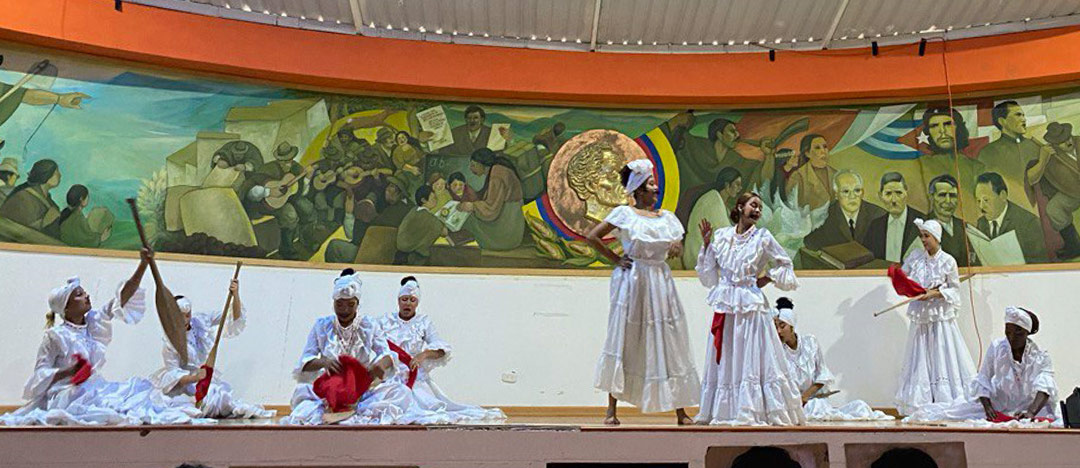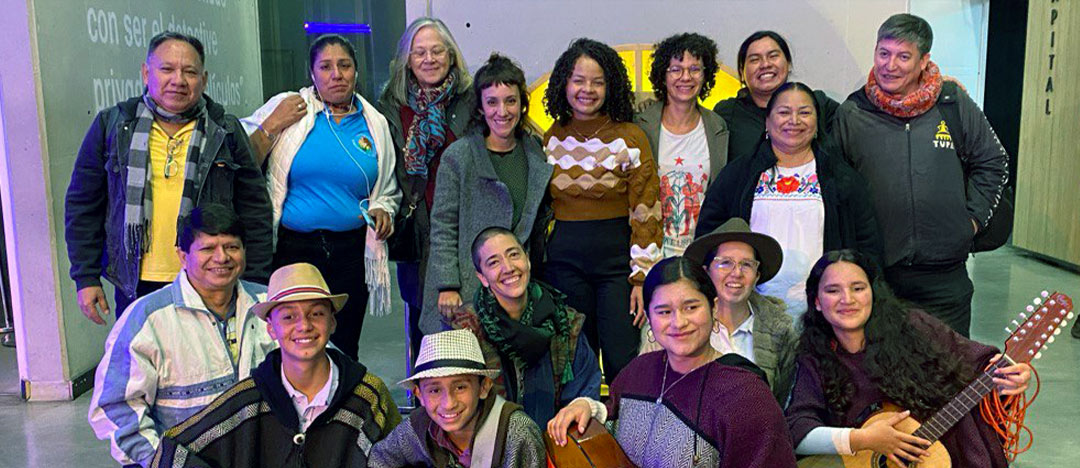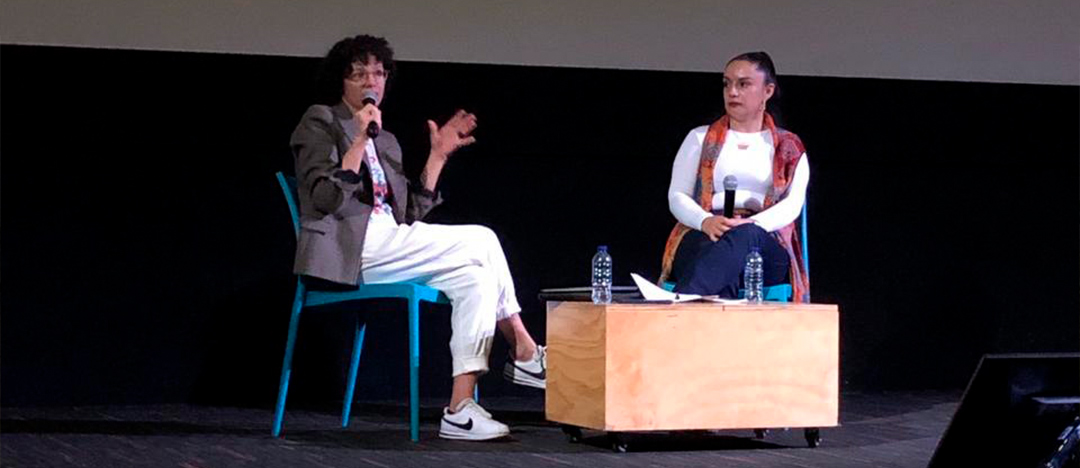FIAR – INTERNATIONAL FESTIVAL OF ART AND RURALITY
27 October - 2025
Silo – Art and Rural Latitude opens the inaugural conference of the Seminar, part of the Festival’s program.
Organized by the Instituto Distrital de Artes (IDARTES), the Festival Internacional de Arte y Ruralidad took place in Bogotá, Colombia, from October 4 to 28. The event promoted international and intercultural dialogue between rural and urban contexts through art, broadening the visibility of rural expressions and strengthening the recognition of art in its relationship with rurality.
Throughout the festival, the public could take part in 22 activities held across eight different locations, featuring more than 30 national and international guests, along with 42 artists and cultural collectives.
The FIAR Artistic Program occupied both urban and rural spaces of Bogotá. The audience could enjoy performances by rural groups and participate in creative workshops that fostered encounters between diverse forms of knowledge and artistic expression. All activities were carried out with the involvement of local communities, some of them taking place directly within community spaces.
 FIAR Artistic Program | Photo: Cinthia Mendonça
FIAR Artistic Program | Photo: Cinthia Mendonça
The Festival’s curatorial work was carried out by notable Latin American figures such as Cinthia Mendonça (Brazil); Fernando García Dory and Benito Burgos (Spain); Silvia Rivera Cusicanqui (Bolivia); Germán Rey (Colombia); Alfredo Díaz (Sumapaz – Colombia); and Martha Villalba (Usme – Colombia).
 Guests and participants at FIAR
Guests and participants at FIAR
International Seminar on Art and Rurality
The International Seminar, part of the FIAR program, focused on generating knowledge and fostering participation in the international debate on the relationship between art and rurality—based on the exchange of experiences, reflections, knowledge, and wisdom. The Seminar was held from October 12 to 15 across four different venues, featuring keynote lectures, panels, and artistic showcases.
Cinthia Mendonça, from Silo – Art and Rural Latitude, and Martha Villalba, from the Escuela de Cultura Campesina de Usme, delivered the Seminar’s opening conference at the Bogotá Cinematheque, where they shared concrete experiences on how art has transformed life in the territories where they work—strengthening the sense of belonging, creating conditions for permanence, and envisioning fairer and more sustainable futures. The opening talk was titled “The Future is Rural” (El futuro es campesino).
 Cinthia Mendonça, director of Silo – Art and Rural Latitude, and Martha Villalba, from the Escuela de Cultura Campesina de Usme, open the Seminar conference | Photo: Maria Laís
Cinthia Mendonça, director of Silo – Art and Rural Latitude, and Martha Villalba, from the Escuela de Cultura Campesina de Usme, open the Seminar conference | Photo: Maria Laís
At several moments, Cinthia Mendonça emphasized the importance of recognizing ancestral knowledge as the foundation of peasant practices and culture. The countryside is shaped by Indigenous and Afro-diasporic cultures, whose legacies include not only artistic and cultural expressions but also deep knowledge about land cultivation and the ability to observe and interpret biomes and biodiversity.
The discussion also addressed the importance of fostering critical thinking about life in rural areas, while acknowledging the challenges and obstacles that persist. The work of these two Latin American institutions brings visibility to rural knowledge and confronts narratives that perpetuate prejudices and caricatured or folkloric stereotypes.
On October 12, the Seminar opened at the Teatro Jorge Eliécer Gaitán; the following day, participants traveled to the rural community of Sumapaz (Páramos region). The second and third days were dedicated to keynote lectures and panels at the Cinemateca and Planetario Distrital, fostering conversations between the knowledge of academics, artists, cultural managers, and community leaders.
On October 14, a debate was held on the management of art and rurality, and on October 15, the discussions focused on four main thematic axes: Ecology and Environmental Sustainability, Food Sovereignty, Rural-Urban Migrations, and Social Memories.
The Seminar affirmed peasant knowledge as essential to building futures that are supportive, just, creative, and ecological.



 CC BY-SA 4.0
CC BY-SA 4.0